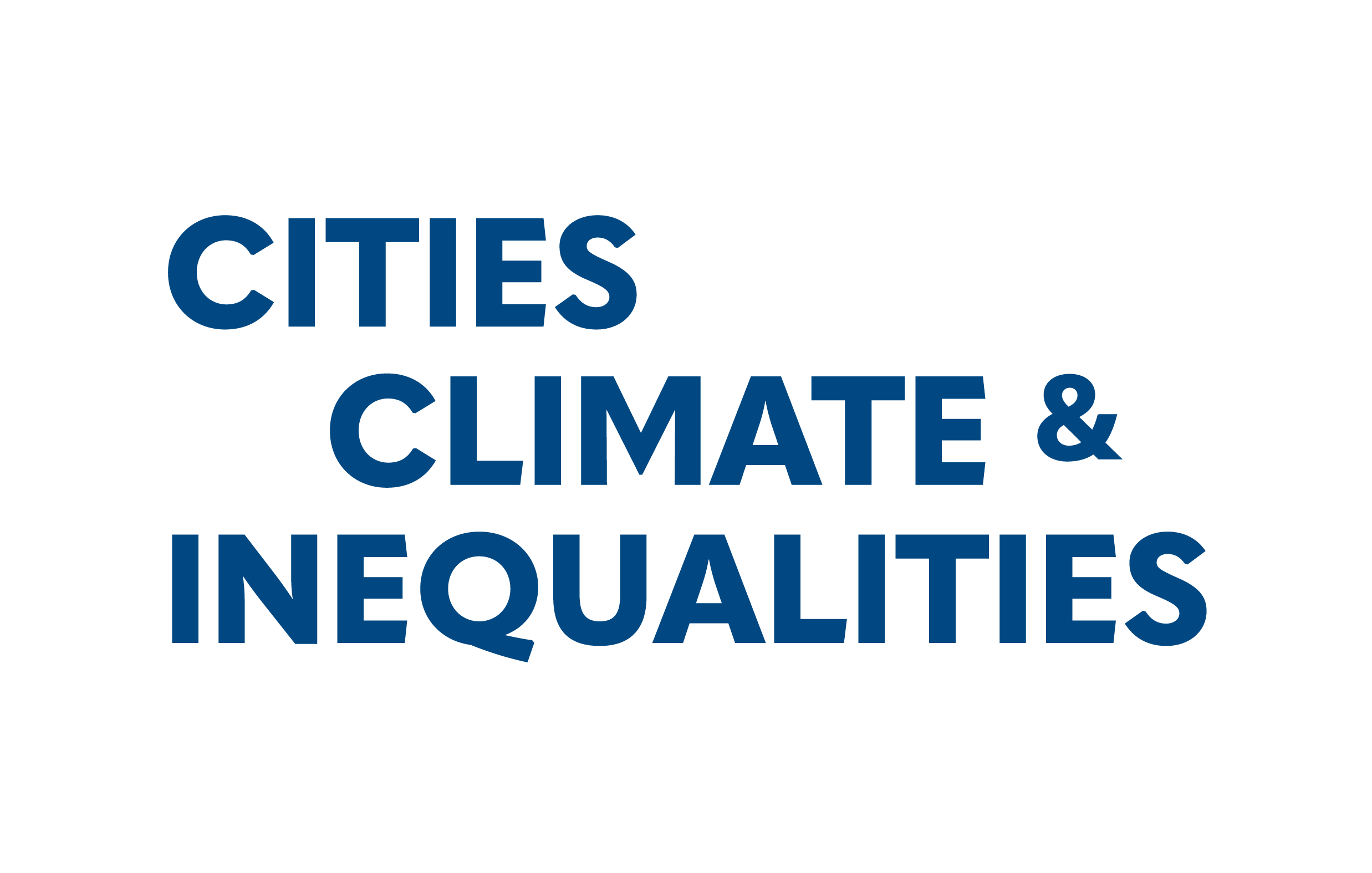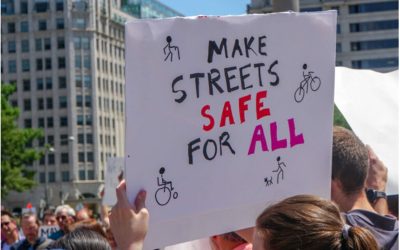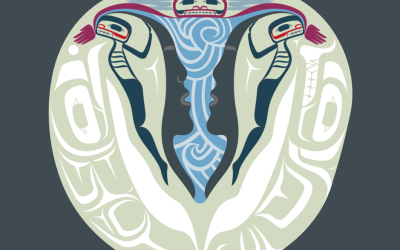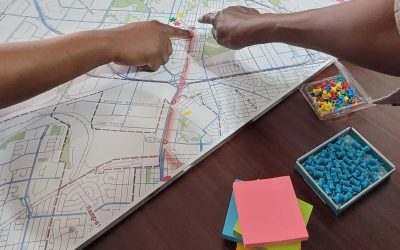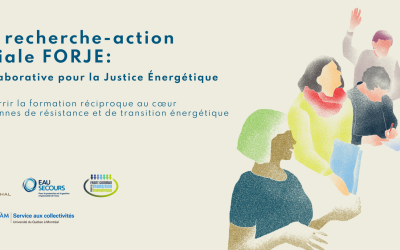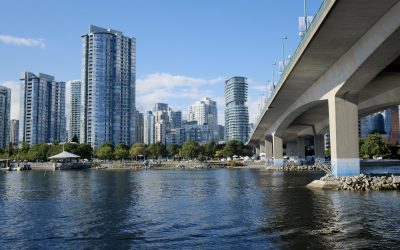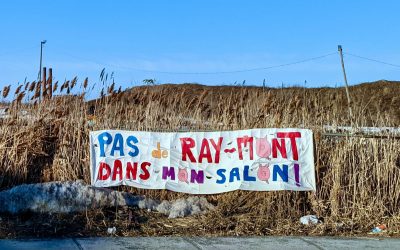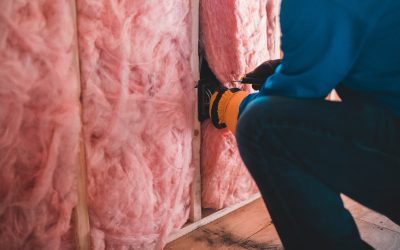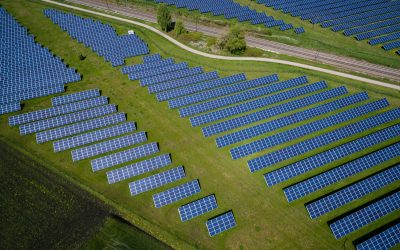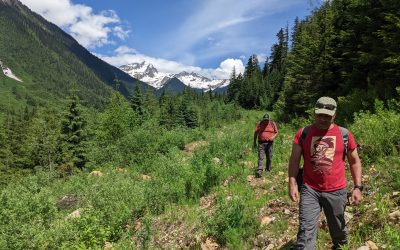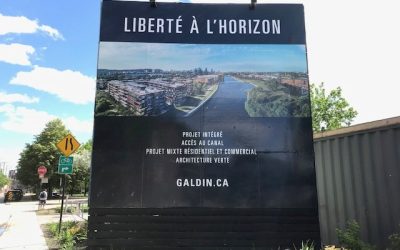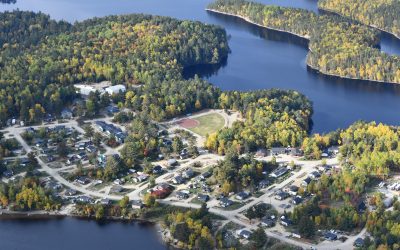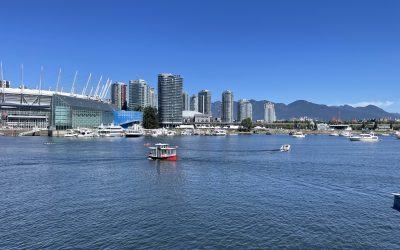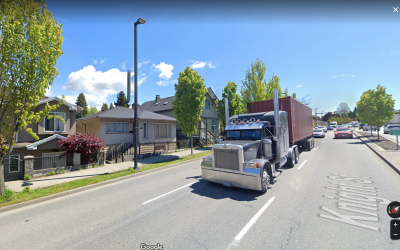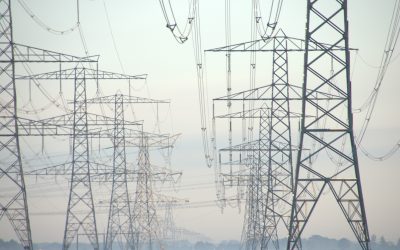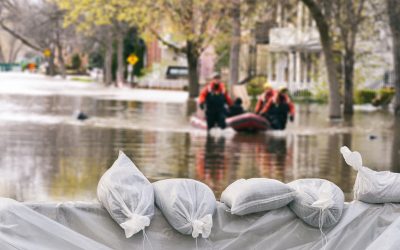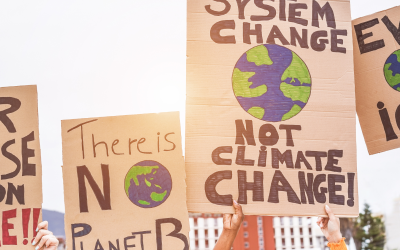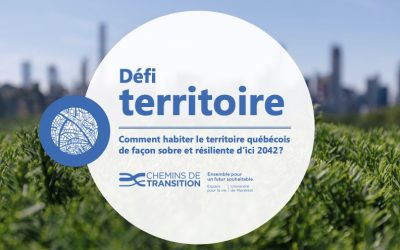
A collection of research summaries
This collection aims to bring together and make accessible existing knowledge on the relationship between inequalities, climate action and sustainability transition initiatives in cities and regions in Canada. In 2023, 15 syntheses of recent research in Quebec were published. In 2024, 26 new syntheses from recent research in British Columbia, Ontario and Quebec are published. The project is led by Hélène Madénian and Sophie L. Van Neste from INRS, and the team from the Canada Research Chair in Urban Climate Action, with a scientific committee composed of René Audet (UQAM), Geneviève Cloutier (Université Laval), Stéphane Guimont Marceau (INRS), Nathalie Bleau (Ouranos), Laura Tozer (University of Toronto) and Christina Hoicka (University of Victoria), in collaboration with Villes Régions Monde network and the participation of Alexandra Nadeau. To find out more…
Fighting climate change in an urban context: Toward a disability inclusive approach
By Sébastien Jodoin and Naomi Gupta
While existing literature already addresses the consequences of urban climate action for racial and socio-economic inequalities, its intersections with inclusion and equality for people with disabilities have received little attention from researchers. This lack of knowledge is problematic in light of emerging evidence that climate mitigation and adaptation efforts have the potential to dismantle and reinforce the social, economic and physical barriers faced by people with disabilities.
Presence & power: The illusion of Indigenous inclusion in climate adaptation plans in Canada
By Janna Wale
Over the past several years, there has been an increasing recognition of the importance of including Indigenous knowledge in both responding and adapting to climate change. Canada’s first National Adaptation Strategy (NAS) and associated Action Plan (NAP), released in draft in 2022, presented a landmark opportunity for Indigenous people to both meaningfully contribute and lead climate action and adaptation. However, many aspects of Indigenous inclusion and representation in the development of the NAS and NAP fell short. This research considers the involvement (or lack thereof) of Indigenous peoples in adaptation planning and decision-making in Canada.
Urban inequality and planning in a context of socio-ecological transition: The Conseil interculturel de Montréal’s action research experience
By Chloé Reiser
In Montreal, territorial inequalities are a central issue in planning policies, with a view to a fairer socio-ecological transition. Although the City of Montreal recognizes the existence of such inequalities within its territory, much remains to be done to guarantee equitable access to urban resources for all citizens. As part of the renewal of the city’s Urban Planning and Mobility Plan, the Conseil interculturel de Montréal (CIM) is looking at the experiences of immigrant and racialized people in terms of territorial inequalities. Drawing on an in-depth review of grey and academic literature, as well as an online survey and mapping-discussion workshops conducted in three disadvantaged city neighborhoods – Saint-Léonard, Saint-Laurent and Montréal-Nord – immigrant and racialized people not only identify obstacles to accessing urban resources, notably public transport, affordable housing and green spaces, but also put forward solutions to address these persistent issues.
Architecture + Homelessness: Inclusive practices for urban solidarity
By Carolyne Grimard, Sonia Blank, Sarahlou Wagner Lapierre, Elizabeth Prince et Véronic Lapalme
The COVID-19 pandemic, combined with the housing, migration and climate crises, has increased inequalities and exacerbated homelessness in urban areas. How can we engage architecture to transform our cities in solidarity with people experiencing or at risk of homelessness? Research carried out by the team of Architecture Sans Frontières Québec (ASFQ) and the Université de Montréal has identified planning gestures aimed at reversing the dynamics of exclusion, reconsidering perceptions of home and adapting design to the realities of life in public space.
Fighting for a just transition in the local political arena: Challenges and opportunities for reciprocal training between elected officials and residents
By Anne-Sophie Bendwell
Citizen mobilization for the energy transition in so-called Quebec has been in full swing in recent years. One of the strategies of activists is to invest local political spaces. To facilitate this strategy, we analyzed the results of a focus group that then informed a literature search on the theme. In the light of these results, we propose avenues of reflection for the reciprocal conformation of the various actors involved in local politics.
Energy poverty in Canada: Social and geographic inequalities
By Mylène Riva
Between 6% and 19% of Canadian households are currently grappling with energy poverty, according to data sourced from the 2017 Survey of Household Spending. This research delves into the social and geographic distribution of this phenomenon across the country. The study reveals that certain household types, such as those with single occupants, lone parents, or older members, face significantly higher odds of experiencing energy poverty. Geographical disparities are evident, with households in Atlantic provinces and rural areas facing nearly double the odds of energy poverty compared to other regions. These findings underscore the socio-spatial patterning of energy poverty in Canada and highlight its variability across different locales.
Exploring equity and justice content in Vancouver’s environmental plans
By Emeralde O’Donnell and Andréanne Doyon
Scholars have raised concerns about vague uses of equity and justice terms negatively impacting equity and justice work in planning. We explored the link between equity and justice framings and outcomes in four of Vancouver’s environmental plans. With the inequitable impacts of climate change and a history of planning worsening inequities, we must consider how approaches to equity and justice are impacting planning work in our cities.
The (very) concrete utopia of Bâtiment 7: A common facing the challenges of its financial autonomy
By Sylvain A. Lefèvre and David Grant-Poitras
Bâtiment 7 is a « collective autonomy factory » located in a working-class district of Montreal. By studying the micro-politics of its financing, we examine the articulation of its issues of sustainability, accessibility and economic democratization. Structural tensions emerge in reconciling all these objectives, but so do promising social innovations. Far from being a technical detail, financial empowerment puts the common good to the test – its boundaries, its resources, the links between its members and its collective architecture.
Community development in the context of the social and environmental transition: Eight Local development processes in Quebec
By Lucie Morin, Sonia Racine, Denis Bourque, André-Anne Parent, René Lachapelle, Christian Jetté, Stéphane Grenier, Dominic Foisy, Sébastien Savard, Serigne Touba Mbacké Gueye, Geneviève Le Dorze-Cloutier, Ariane Hamel and Charlotte Goglio
In Quebec, a multitude of players work together to maintain and improve living conditions. Solid expertise has been built up in the field of community development. This collective intelligence could be put to good use in the fight against the climate crisis. Qualitative research carried out in 8 territories in Quebec aims to understand how territorial development approaches, especially those dedicated to social development, contribute to the collective efforts required to ensure the socio-ecological transition.
Key considerations for addressing the equity deficit in municipal climate action
By Jennifer Dobai and Manuel Riemer
Increasingly, municipalities are taking actions to address global climate change at a local level. Yet, some of these actions generate unintended consequences for marginalized communities, resulting in an equity-deficit. In this summary, the authors first review a study that explored the perspectives of key municipal sustainability actors on this equity-deficit in municipal climate action. While there was a general awareness of this issue, the participants highlighted several key structural barriers in addressing it. Building on this finding, the authors then review a second connected study from the same municipal area that investigated how a needed transformation may be initiated by shifting mental models of municipal leaders.
“Climate justice” in Quebec: Struggle, mobilization, and practice
By Hélène Madénian, Sophie L. Van Neste, Zaïnab El Guerrab and René Audet
This synthesis presents a history of the struggles that have helped redefine the environmental movement in Quebec over the past fifteen years. First, the struggles against hydrocarbons, then three subsequent moments in the movement: roadmaps and local experiments for transition, conversations to bring « the margins » back to the heart of the climate movement, and contestations from an urban wasteland in Montreal.
Achieving deep-energy retrofits for households in energy poverty
By Laura Tozer, Hannah MacRae and Emily Smit
This systematic review identifies which factors influence the achievement of energy retrofits for households vulnerable to energy poverty. The results identify a range of influential factors across several themes: financial, policy, organizational, trust, communication, technical, attitudes, and health. Quality of life, health, trust, and communication are particularly influential motivating factors among households vulnerable to energy poverty. Financial considerations such as the availability of no-cost retrofits and the prospect of lower costs are also important. Government requirements to retrofit and minimum energy standards are motivating, particularly in the social housing sector.
Justice in energy transitions
By Stephen Williams and Andréanne Doyon
As the climate crisis grows, energy systems are transitioning to renewable and sustainable alternatives. However, these transitions often lead to injustice and inequities. Transitions research must better consider justice in its analysis. Drawing from environmental and energy justice literature, we consider justice for people, communities, and the non-living in transitions research through the development of an analytical framework. The framework provides reflective practice to support distributive, procedural, and recognition justice.
Supporting climate action and Indigenous self-determination: Ethical space-based planning in the Upper Columbia region of British Columbia
By Moe Nadeau
Planners play a key role in shaping society, but have historically oppressed Indigenous communities. Adopting Ethical Space-based planning can balance power dynamics between Indigenous and non-Indigenous governments, fostering collaboration and ethical decision-making for land. Indigenous voices are the key to climate action, as their deep connection and commitment to act in relationship with the land supports long-term sustainability. This research offers recommendations to advance Ethical Space in planning initiatives. Through Ethical Space, planners can create more just and resilient futures.
Access to green spaces: A source of environmental inequalities? The case of Saint-Henri in Montreal
By Étienne Tardif-Paradis
In recent years, the Montreal metropolis has stepped up the implementation of greening projects in line with an ideal of sustainable urban development and environmental justice. The Saint-Henri district is an emblematic case in point, with its high density of green spaces. However, the proliferation of public interventions to green urban spaces is taking place in a living environment characterized by specific socio-economic realities and needs, and marked by a process of gentrification. Here, the authorities’ desire to respond to certain socio-environmental inequalities by improving access to green spaces is having paradoxical consequences.
The central importance of relationality for climate action and culturally sensitive land-use planning in Indigenous territories
By Geneviève Vachon, Florence Gagnon, Élisa Gouin and Samuel Boudreault
Indigenous communities are struggling with climate change that threatens their relationship to the territory that is the basis of their identity. Four concepts linked to indigenous realities – traditional knowledge, agency, temporality, and relationality – provide keys to understanding this threat. A research-creation project with an Anishinaabe community illustrates possibilities for adaptation as concrete levers for discussion and action.
Evaluating equity and justice in Vancouver’s Sea2City design challenge: An application of the JustAdapt framework
By Tira Okamoto and Andréanne Doyon
Coastal cities around the world are facing intersecting problems of adapting to sea level rise while addressing social equity. Vancouver, British Columbia – located on the unceded territories of the xʷməθkʷəy̓əm (Musqueam), Skwxwú7mesh (Squamish), and səlilwətaɬ (Tsleil-Waututh) Nations – is no exception. The City of Vancouver recently completed the Sea2City Design Challenge (Sea2City), inspiring collaborative design concepts for False Creek, a narrow inlet near downtown Vancouver. Using Sea2City as a case study, this research applies the JustAdapt evaluative framework to evaluate equity and justice in coastal adaptation planning in Vancouver.
Adaptation measures by Quebec municipalities: Progress and determinants according to deprivation level
By Johann Jacob and Pierre Valois
With many climate risks concentrated in urban areas, adaptation to climate change is an issue that cities and municipalities can no longer ignore. A better understanding of the potential effects of adaptation actions, particularly the less desirable ones, has become a necessity. From a just transition perspective, it is essential to develop the capacity to measure and assess the progress made by municipalities in adaptation, as well as to strengthen their ability to take account of the specific vulnerabilities of certain groups.
Equity in climate plans: a comparison between Vancouver and Montreal
By Hélène Madénian, Sophie L. Van Neste, Andréanne Doyon and Ashley Armitage
This research focuses on the equity and justice approaches of the City of Vancouver and the City of Montreal in their climate plans, i.e. the definitions of equity and the concrete measures considered by the two cities. Identified as climate leaders, Vancouver and Montreal have targets in line with the Paris Agreement and are committed to becoming carbon neutral by 2050, and each published a new climate plan in 2020.
Clearing the air: Barriers to improving air quality and reducing environmental inequity along Vancouver’s Clark-Knight corridor
By Nancy Lai-Chu Chan
Based on a thesis completed for the SFU Masters of Urban Studies Program, this research summary focuses on the investigation of barriers to implementing policies and programs to improve air quality and reduce environmental inequity related to traffic-related air pollution exposure along the Clark-Knight corridor, home to a six-lane arterial road and one of the busiest, most polluted truck routes in the Metro Vancouver region.
A just energy transition for Indigenous Peoples: From ideal deliberation to fairness in Canada and Australia
By Fabienne Rioux-Gobeil
In response to the climate crisis, renewable energy projects are being developed around the world and mostly, on Indigenous traditional territories. In countries such as Canada and Australia, the questions of Indigenous national sovereignties are still unclear and unresolved which causes complex issues of unequal power relations. About energy security, resurgence and self-determination, the energy transition could be the promise of great opportunities for Indigenous peoples. However, to benefit from renewable energy projects, they have to be in a position to fairly defend their interests.
Energy poverty: An overlooked determinant of health and climate resilience in Canada
By Mylène Riva
Even though Canada is a significant energy producer, not all Canadians have access to or can afford sufficient energy services at home to fulfill their needs, maintain comfortable indoor temperatures, and lead decent lives—a circumstance referred to as energy poverty. This research, the first of its kind in the Canadian context, examines the connection between energy poverty and health. It demonstrates that experiencing energy poverty is linked to a significantly higher probability of poor physical and mental health. Considering the substantial portion of Canadian households affected by energy poverty and its demonstrated impact on public health, addressing this issue is crucial for ensuring an equitable energy transition and enhancing climate resilience.
Reciprocal training: An instrument of epistemic justice in the campaign for a just energy transition
By Laurence Brière, Guillaume Moreau, Maude Prud’homme, Isabel Orellana, Marie-Ève Marleau, Martine Chatelain and Marie-Pier Lafrance
The eco-citizen movement for an energy transition is working to transform the dominant economic-energy system with a view to social justice and respect for the environment. By collaborating with stakeholders in this mobilization as part of an action-research project, we raised the epistemic justice issues inherent in this political project, and attempted to create spaces for reciprocal training, highlighting the diversity of types of knowledge. An innovative conceptual framework for energy justice was proposed, taking into account the very concrete realities of eco-citizen struggles and initiatives.
Repeated flooding in Pointe-Gatineau: From living neighbourhood to wasteland
By Ariane Hamel and Nathalie St-Amour
The community of Pointe-Gatineau was hit by a series of historic floods in 2017, 2019 and 2023. Since then, many homes have been destroyed and a large number of residents have left the area, leading to insecurity among those who remained. This synthesis presents the preliminary results of a study looking at the recovery process of people affected by the 2017 and 2019 floods, and in particular at the role played by their attachment to their community in this process.
References to vulnerability in Quebec’s 2013-2020 climate change policy initiatives: Supporting resource extraction at the expense of environmental justice
By Laurie Gagnon-Bouchard
Based on a master’s thesis, this synthesis examines the integration of the concept of vulnerability into Quebec’s climate change policy guidelines for 2013-2020. The analysis results indicate that using the language of vulnerability can emphasize the vulnerability of the economic sectors in the Northern Plan. This approach allows for a risk management strategy that does not compromise economic growth or increase associated risks.
Setting just transition milestones: Chemins de transition challenges Quebecers to envision a sustainable future
By Franck Scherrer and Jeanne Paré
For three years, the Chemins de transition initiative brought together the academic community and the driving forces of Quebec society in a forward-looking, participatory process to map out a trajectory towards more sober and resilient ways of living in the territory by 2042. This text summarizes the process, focusing on the role of social justice in the mobilization of knowledge about the future.
Climate change adaptation on the margins: Community contributions to reducing vulnerability to extreme heat
By Anne-Marie D’Amours, Étienne Poulin and Sophie L. Van Neste
Heat waves are a growing threat to cities, but one that weighs much more heavily on certain vulnerable segments of the population. And yet, some of the less traditional players in the field of adaptation are contributing, directly or indirectly, to reducing such social vulnerabilities and mitigating certain socio-environmental inequalities through care and social support practices. Although Montreal is distinguished by its dynamic community and associative milieu, the potential contribution of this sector to heat wave adaptation remains poorly understood.
Montreal’s green alleyways: Spatial disparities and variations
By Thi-Thanh-Hiên Pham, Ugo Lachapelle, Basile Mangiante et Alexandre Rocheleau
Green alley programs, increasingly promoted by cities across North America, generally aim to transform alleyways into green infrastructure, providing more ecosystem services, improving road safety and enabling ownership by local residents. In Montreal, they are more present in medium- to high-density, middle-income areas, with more young people and lower percentages of couples with children. They are less present in neighborhoods with more recent immigrants and visible minorities.
Digital technologies to combat climate change: Between problem and paradox
By Marie-Luc Arpin and Sébastien Gambs
In the face of massive data flows, urban dynamics are being (re)shaped in depth. Urban climate action can no longer be conceived independently of digital social dynamics. It also involves paradoxes related to data security and the rebound effect.
Sustainable housing and electric mobility programs in Quebec: Toward a trajectory of urban sprawl and growing socioeconomic inequalities
By Guillaume Lessard
Two major challenges to sustainable urbanization in North America are the environmental, social and economic impacts of urban sprawl, and the growing socio-economic inequalities associated with housing and mobility. Several government policies and programs address these issues. However, depending on how they are implemented, interventions in these sectors can lead to the reinforcement of structural and cultural barriers specific to urban sprawl, as well as the exacerbation of pre-existing socio-economic inequalities.
